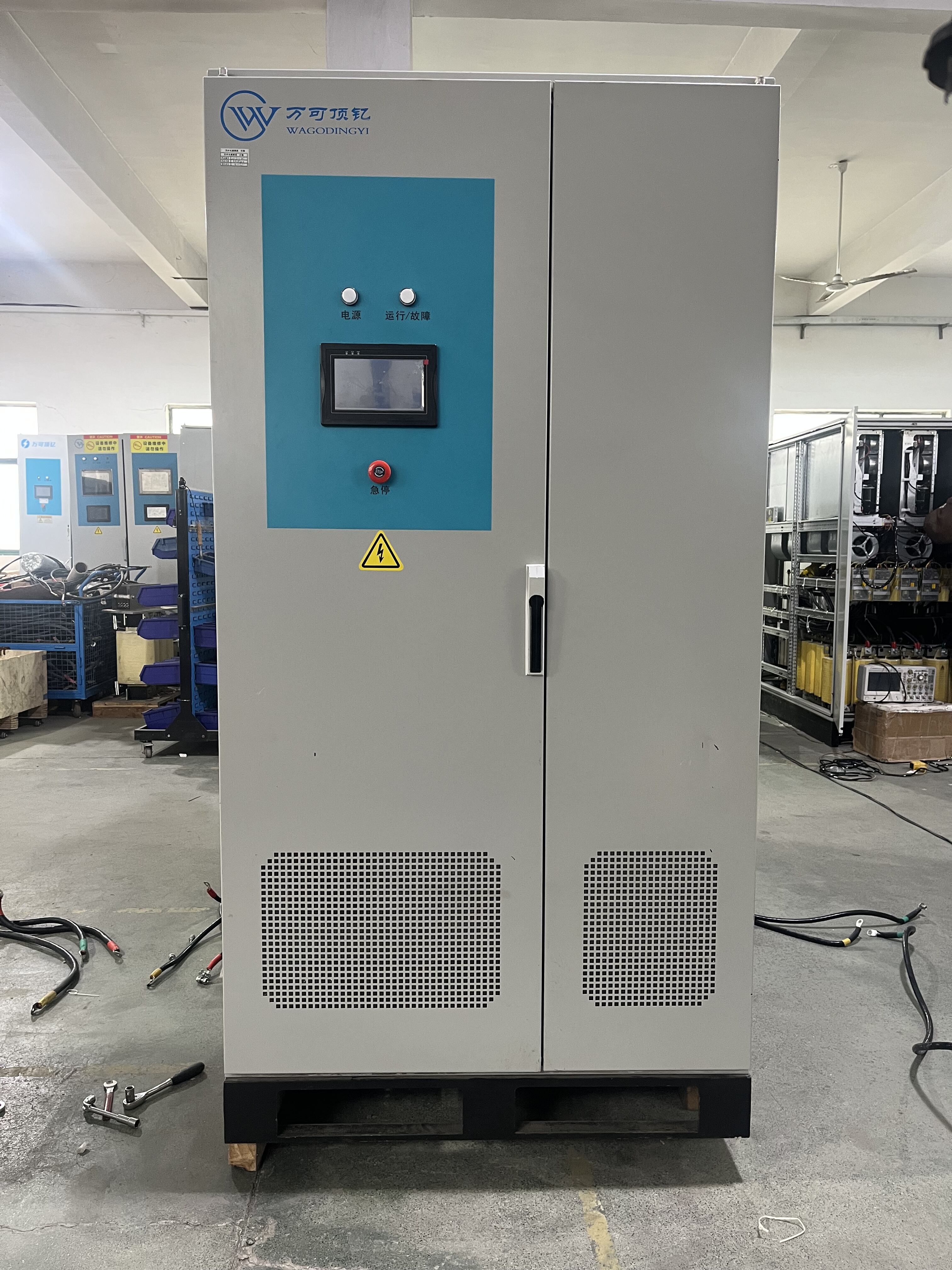Inzicht in kritieke stroomvoorzieningsvereisten van moderne apparatuur
In de huidige technologiegerichte wereld kunnen de betrouwbaarheid en kwaliteit van de stroomvoorziening het functioneren van geavanceerde apparatuur bepalen. Een hoogwaardige Ac voeding vormt de basis voor vele kritieke systemen in verschillende industrieën. Van medische voorzieningen tot datacenters blijft de vraag naar schone, stabiele en nauwkeurige stroomtoevoer groeien, omdat apparatuur steeds gevoeliger en complexer wordt.
De betekenis van premium voedingoplossingen gaat verder dan enkel voltage omzetting. Deze systemen beschermen waardevolle apparatuur, waarborgen operationele continuïteit en behouden nauwkeurige prestatie-eisen die moderne apparaten vereisen. Laten we de verschillende categorieën apparatuur verkennen die afhankelijk zijn van uitstekende vermogenskwaliteit en waarom kiezen voor standaardoplossingen geen optie is.

Medische en zorgapparatuur
Diagnostische beeldvormingssystemen
Geavanceerde medische beeldvormende apparatuur, zoals MRI-scanners, CT-scanners en röntgensystemen, vereist een hoogwaardige AC-voeding om de beeldkwaliteit en levensduur van de apparatuur te garanderen. Deze geavanceerde apparaten gebruiken krachtige magneten en gevoelige detectoren die uiterst stabiele voedingsomstandigheden vereisen. Zelfs kleine spanningsfluctuaties kunnen leiden tot beeldartefacten, kalibratiefouten of systeemuitval.
De voedingseisen voor deze systemen omvatten doorgaans spanningsregeling binnen ±1%, harmonische vervorming onder 3% en onmiddellijke respons op belastingswijzigingen. Zonder een betrouwbare stroomvoorziening lopen ziekenhuizen het risico van kostbare uitval en verminderde patiëntenzorg.
Levensondersteuningsystemen
Apparatuur voor intensieve zorg zoals beademingsapparaten, hart-longmachines en patiëntenbewakingssystemen vereisen onwrikbare stroomstabiliteit. Deze apparaten ondersteunen essentiële levensfuncties en moeten continu werken zonder onderbreking. Een hoogwaardige Ac voeding zorgt voor schone, consistente stroomlevering en beschermt tegen spanningspieken, drukval en andere stroomproblemen die de patiëntveiligheid in gevaar kunnen brengen.
Moderne levensondersteunende systemen integreren vaak geavanceerde elektronica die nauwkeurige stroomparameters vereist om accurate metingen en betrouwbare werking te garanderen. De voeding moet galvanische scheiding bieden en voldoen aan strikte medische veiligheidsnormen, terwijl de optimale prestaties behouden blijven.
Industriële productieapparatuur
Nauwkeurige CNC-machines
Computernumerieke besturing (CNC)-machines vormen de ruggengraat van moderne productie. Deze precisie-instrumenten vereisen een hoogwaardige wisselstroomvoorziening om nauwkeurigheid in hun bewerkingen te behouden. Spanningsfluctuaties kunnen leiden tot afmetingsonnauwkeurigheden, oppervlakteafwerkingsproblemen en verminderde slijtage van het gereedschap.
Geavanceerde CNC-systemen bevatten vaak servomotoren en geavanceerde besturingselektronica die schoon stroom nodig hebben met minimale harmonische vervorming. De voeding moet snelle belastingsveranderingen aankunnen terwijl de spanning en frequentie stabiel blijven om een consistente bewerkingskwaliteit te garanderen.
Geautomatiseerde assemblagelijnen
Moderne productielijnen beschikken over talrijke gesynchroniseerde componenten die perfect in harmonie moeten werken. Van robotarmen tot transportbanden, elk element is afhankelijk van nauwkeurige timing en coördinatie. Een hoogwaardige wisselstroomvoorziening zorgt ervoor dat alle systemen een constante stroomtoevoer krijgen, waardoor productievertragingen worden voorkomen en de productkwaliteit behouden blijft.
Het voedingssysteem moet ook gevoelige automatiseringscontrollers en communicatienetwerken beschermen tegen elektrische ruis en interferentie. Deze bescherming is cruciaal om de integriteit van productiegegevens te waarborgen en kostbare productiefouten te voorkomen.
Laboratorium- en onderzoekapparatuur
Elektronenmicroscopen
Elektronenmicroscopen vormen enkele van de meest gevoelige wetenschappelijke instrumenten die momenteel in gebruik zijn. Deze geavanceerde apparaten vereisen uiterst stabiele voedingsomstandigheden om hun opmerkelijke beeldvormende mogelijkheden te realiseren. Een hoogwaardige wisselstroomvoeding helpt elektrische ruis te elimineren die zich anders zou kunnen manifesteren als beeldvervorming of meetfouten.
De voedingsvereisten voor elektronenmicroscopen omvatten vaak uiterst lage rimpelspanning, nauwkeurige frequentieregeling en uitzonderlijke stabiliteit onder variërende belastingsomstandigheden. Elke aantasting van de voedingskwaliteit kan leiden tot verlies van onderzoekstijd en ongeldige resultaten.
Massaspectrometers
Massaspectrometers vereisen nauwkeurige voedingsomstandigheden om nauwkeurige moleculaire analyse mogelijk te houden. Deze instrumenten gebruiken complexe elektromagnetische velden die stabiel moeten blijven voor betrouwbare resultaten. Een hoogwaardige wisselstroomvoeding zorgt voor een consistente werking van vacuümpompen, ionisatiebronnen en detectiesystemen.
De voeding moet ook beschermen tegen externe storingen, terwijl deze een zuivere stroom levert aan gevoelige elektronische componenten. Deze bescherming is essentieel om de kalibratie in stand te houden en reproduceerbare experimentele resultaten te garanderen.
Datacenterinfrastructuur
Serverystemen
Moderne datacenters bevatten duizenden servers die continu kritieke informatie verwerken. Deze systemen vereisen een hoogwaardige wisselstroomvoeding om de onafgebroken werking te garanderen en te beschermen tegen gegevensbeschadiging. De stroomvoorzieningsinfrastructuur moet variabele belastingen aankunnen terwijl nauwkeurige spanningsregeling en frequentiestabiliteit worden gehandhaafd.
Serverfarms genereren veel warmte en vereisen uitgebreide koelsystemen, die allemaal afhankelijk zijn van betrouwbare stroomvoorziening. Het stroomsysteem moet samenwerken met ononderbroken stroomvoorzieningen (UPS) en noodgeneratoren om een naadloze werking tijdens stroomonderbrekingen te garanderen.
Netwerkequipment
De kernnetwerkinfrastructuur, inclusief routers, switches en opslagsystemen, vereist schone, stabiele stroom om betrouwbare datatransmissie te garanderen. Een hoogwaardige AC-stroomvoorziening helpt bij het voorkomen van pakketverlies, verbindingverlies en beschadiging van apparatuur die kan voortkomen uit problemen met stroomkwaliteit.
De stroomvoorziening moet ook redundante configuraties en hot-swap-mogelijkheden ondersteunen, zodat onderhoud kan worden uitgevoerd zonder dat de dienst wordt onderbroken. Deze eis is met name belangrijk voor faciliteiten die service level agreements met strikte uptime-garanties hanteren.
Veelgestelde Vragen
Wat bepaalt een hoogwaardige AC-stroomvoorziening?
Een voedingssysteem met hoog rendement onderscheidt zich door nauwkeurige spanningsregeling, lage harmonische vervorming, snelle reactie op spanningspieken en robuuste beveiligingsfuncties. Het biedt doorgaans betere stabiliteit, betrouwbaarheid en efficiëntie in vergelijking met standaard voedingen, waardoor het geschikt is voor gevoelige en kritieke apparatuur.
Hoe beïnvloedt de kwaliteit van de elektriciteit de prestaties van apparatuur?
De kwaliteit van elektriciteit heeft directe invloed op de nauwkeurigheid, betrouwbaarheid en levensduur van apparatuur. Slechte stroomkwaliteit kan leiden tot meetfouten, systeemstoringen, verhoogde onderhoudsbehoeften en vroegtijdige slijtage van apparatuur. Voedingen met hoog rendement verminderen deze problemen doordat zij schone en stabiele stroom leveren.
Wat zijn de belangrijkste aandachtspunten bij de keuze van een voedingssysteem?
Belangrijke overwegingen zijn de vermogenseisen van de apparatuur, de omstandigheden in de omgeving, de nalevingsvereisten en de betrouwbaarheidsvoorwaarden. Factoren zoals tolerantie voor spanningregeling, limieten voor harmonische vervorming, mogelijkheden voor spanningspiekbeveiliging en integratie van noodstroomvoorziening moeten allen zorgvuldig worden beoordeeld tijdens het selectieproces.



